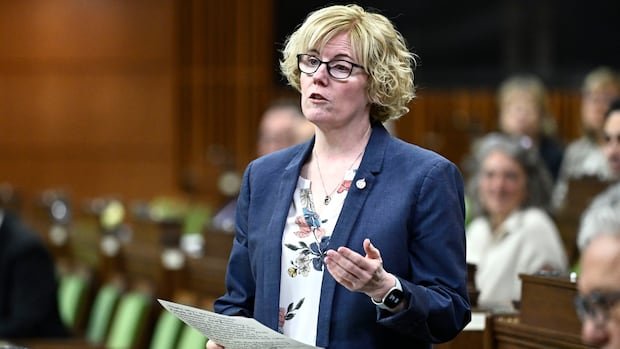Canada’s newly appointed safe sport guardian is eagerly awaiting insights from the inaugural report of the Future of Sport in Canada Commission, aiming to address issues related to abuse and mistreatment within the sports sector.
Following a directive from former federal sports minister Carla Qualtrough, the Canadian Centre for Ethics in Sport (CCES) assumed responsibility for receiving and investigating complaints of maltreatment and abuse, taking over from the Office of the Sport Integrity Commissioner in April. However, the CCES’s jurisdiction is currently limited to the national level that receives federal funding, excluding provincial, territorial, and club levels.
During the first quarter, the CCES received 111 reports, but only 11 were deemed admissible due to the jurisdictional constraints, resulting in 82 reports being dismissed. The CCES has been proactive in seeking alternative authorities to handle cases falling outside its purview.
The CCES issued provisional measures against two individuals in the initial quarter but refrained from imposing sanctions. At levels below the national scale, sports organizations are left to engage Independent Third-Party (ITP) entities or legal professionals to manage cases, leading to variations in reporting mechanisms and complaint handling procedures.
The Future of Sport in Canada Commission is set to unveil its preliminary report ahead of a September summit in Ottawa. The commission conducted consultations across the country from October to January, gathering input from athletes, coaches, officials, and sports organizations through various channels. The commission’s establishment was prompted by a surge in reports of maltreatment and abuse following the 2022 Olympic Games in Beijing, with athletes sharing distressing accounts of various forms of abuse.
Signy Arnason, the CCES safe sport executive director, emphasized the importance of the commission’s findings in advancing safe sport practices in Canada. She highlighted the possibility of integrating provincial/territorial and club sports under the CCES umbrella as a potential solution, raising concerns about the funding required to support such an expansion.
Notably, Volleyball Canada is the sole national sports organization that has extended the Universal Code of Conduct to Prevent and Address Maltreatment in Sport (UCCMS) to its provincial/territorial and club systems. However, the CCES, with a team of 15 staff members within its Canadian Safe Sport Program, is currently focused solely on national-level cases.
The CCES received 111 reports in the first quarter, with 33% submitted anonymously. Of the reports from impacted individuals, 48% were minors under 18 years, while 69% of reported individuals were adults. The reported prohibited behaviors encompassed psychological, physical, and sexual maltreatment, boundary violations, grooming, process interference, manipulation, and discrimination.
Arnason highlighted the increasing number of reports falling within the CCES’s jurisdiction but stressed the necessity of addressing jurisdictional gaps across different levels of sports in Canada to ensure a standardized approach to handling maltreatment issues.

